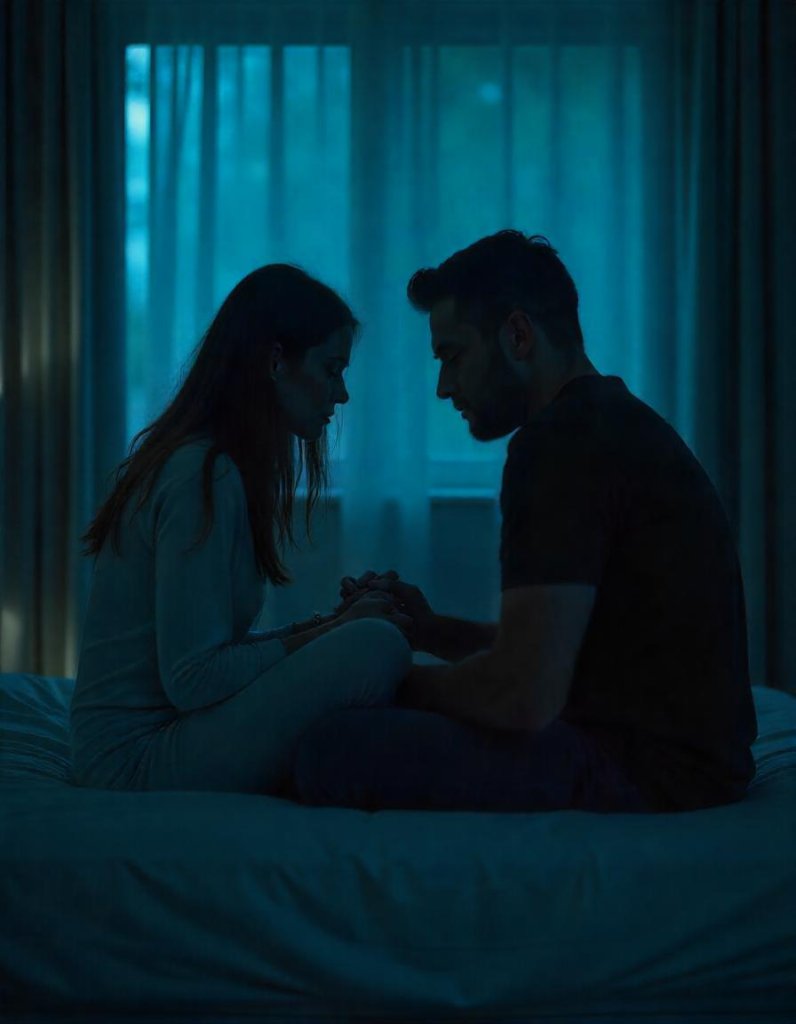A one sided relationship occurs when one person gives significantly more than the other. Whether it’s time, effort, emotional support, or even basic communication, the imbalance leads to frustration and confusion. In this dynamic, one partner feels alone in trying to keep the relationship alive.
This kind of relationship is emotionally exhausting. Over time, it affects self-esteem, trust, and emotional well-being. It’s easy to fall into the trap of making excuses for the other person’s lack of effort. But when only one partner initiates most of the contact and puts in all the emotional work, it becomes clear that the connection is not mutual.
Understanding the signs of a one sided relationship can help you make healthier choices. Whether you’re seeking change or closure, this article breaks down what to look for, why these relationships happen, and what steps to take next.
Common Signs of a One Sided Relationship
One of the clearest signs of a one sided relationship is the imbalance in effort. If you’re always the one who initiates conversations, plans outings, or checks in emotionally, it may be time to pause and evaluate the situation.
Another sign is the constant feeling of being emotionally drained. When one person constantly gives without receiving support or acknowledgment, emotional burnout becomes inevitable. You may feel like you’re investing in a future your partner doesn’t seem to care about.
Lack of appreciation is also a red flag. If your partner rarely expresses gratitude or seems indifferent to your contributions, you may be carrying the emotional load alone. Over time, this dynamic can create resentment and emotional distance.
In a healthy relationship, both individuals contribute. If you’re always the one compromising, explaining your worth, or holding things together, you may be in a one sided situation without realizing it.
The Emotional Toll of Always Giving
Being the only person who shows up for the relationship takes a serious emotional toll. At first, you may tell yourself it’s just a phase or that your partner is going through something. But over time, the emotional burden becomes heavier.
You might start to feel unimportant or invisible. Your needs go unmet, while you continue to prioritize your partner’s happiness. This imbalance can lead to low self-esteem and emotional exhaustion.
It’s especially damaging when the other person doesn’t notice or acknowledge your efforts. When you constantly give and get nothing in return, the lack of emotional reciprocity becomes impossible to ignore.
Feeling emotionally drained from always caring, planning, and hoping for reciprocation isn’t sustainable. Healthy relationships require mutual emotional involvement, not one person always lifting the weight of two.
Why People Stay in One Sided Relationships
Many people stay in one sided relationships far longer than they should. One reason is hope. You might believe things will change or that your partner will eventually meet you halfway. This belief can make it hard to let go.
Fear of being alone also plays a big part. Sometimes, it feels safer to stay in an unbalanced relationship than to face the uncertainty of being single. If your self-worth is tied to the relationship, walking away feels like a personal failure.
There’s also the issue of emotional attachment. Even if the relationship hurts, the emotional bond can keep you connected. You might remember the good moments and ignore the reality of what’s happening now.
The key is recognizing when the relationship has become one sided and accepting that love without balance often turns into emotional pain.
How One Sided Relationships Affect Self-esteem
When you’re in a one sided relationship, it’s easy to start questioning your value. If your partner doesn’t return your affection, you may assume you’re the problem. This constant doubt slowly erodes your self-esteem.
You might begin to feel like you’re not good enough or not worth loving. Over time, this emotional damage can affect your confidence in future relationships. You may hesitate to express your needs or settle for less than you deserve.
Being repeatedly dismissed or ignored affects how you see yourself. Even though the problem isn’t your fault, the emotional weight feels personal. That’s why one sided relationships are so harmful—they don’t just hurt your heart, they change how you see your worth.
To rebuild your confidence, you must first recognize that mutual effort and emotional care are your right—not a privilege you have to earn.
When You’re the Only One Who Initiates Contact
Consistently being the one who initiates contact is a common sign of a one sided dynamic. If you’re always the first to call, text, or make plans, it’s worth asking why the effort is not mutual.
You might rationalize your partner’s silence. Maybe they’re busy, tired, or not good at communication. But a relationship thrives on mutual interest and effort. If your messages go unanswered or conversations feel one-sided, it becomes emotionally exhausting.
Initiating isn’t bad—relationships need people to reach out. But when only one person does it consistently, the relationship lacks balance. Communication should be a shared responsibility, not a solo act.
If your partner rarely initiates or reciprocates, it could mean they’re emotionally disengaged or simply not as invested. Recognizing this early helps you avoid prolonged emotional stress and disappointment.
How Being in a One Sided Relationship Can Become a Habit
One sided relationships often start subtly but can become patterns if not addressed. The more you adjust your expectations and accept less, the more you normalize emotional imbalance. You start believing this is just how relationships are.
You stop expecting effort or emotional support from your partner. You give more time, more energy, and more love while silently feeling the lack of return. This habit becomes emotionally exhausting and hard to break.
Over time, you may even convince yourself that your needs are too much or that asking for emotional balance is selfish. But relationships are partnerships. You deserve mutual respect, communication, and effort.
Breaking the habit of one sided love begins with awareness. You must first admit that you’ve accepted less than you deserve—and then choose to change the pattern.
The Difference Between Love and Obligation
In a one sided relationship, it often becomes hard to tell whether your actions are motivated by love or obligation. At some point, you may stop feeling excited about giving and start feeling like it’s your job to hold things together.
You might continue making sacrifices, not because you want to, but because you feel guilty if you don’t. Your partner may take your efforts for granted, expecting your support without giving any in return.
This imbalance creates emotional fatigue. Giving out of obligation rather than genuine love leads to resentment. Relationships thrive when both partners want to show up—not when one feels forced to do everything alone.
Recognizing this shift is important. If you no longer feel joy or connection but only duty, it’s time to reevaluate the relationship dynamic and decide what you truly need.
Emotional Consequences of Long-term One Sided Relationships
Staying in a one sided relationship for too long can lead to serious emotional consequences. You may feel isolated, even while in a committed relationship. Emotional loneliness can be just as painful as physical separation.
Your sense of joy fades. Your emotional energy gets drained, and you have little left for yourself. Over time, you may develop anxiety, sadness, or hopelessness. The longer the imbalance continues, the harder it becomes to recover emotionally.
This emotional decline can impact other areas of life too—friendships, work performance, and self-care routines. When your emotional health suffers, everything else tends to follow.
If you’ve been in this situation for a while, know that healing is possible. But it starts by stepping back, evaluating the relationship, and deciding if the emotional cost is worth it.
When to Let Go of a One Sided Relationship
Letting go is never easy, especially when you’ve invested time, love, and hope. But sometimes, the most loving act you can do for yourself is to walk away from what’s no longer working.
If your efforts continue to go unnoticed, your needs remain unmet, and the emotional weight keeps growing, it may be time to let go. Staying in a one sided relationship only deepens emotional wounds.
Letting go doesn’t mean you failed. It means you’re choosing emotional balance and self-respect. A healthy relationship feels like teamwork—not a constant emotional struggle.
There comes a point where hoping for change hurts more than moving on. When that happens, choosing to release yourself is not weakness—it’s strength.
Healing After Leaving a One Sided Relationship
After ending a one sided relationship, healing takes time. You might feel sadness, confusion, or guilt—but you also begin to reconnect with your emotional needs. This is a time to rediscover your value and rebuild your confidence.
Allow yourself to feel your emotions. Don’t rush the healing process. Focus on activities that bring peace and joy. Spend time with people who truly care about you and provide mutual support.
Reflect on what you’ve learned. Healing helps you grow stronger and clearer about what you deserve. The next relationship can be different—because you are different now.
Leaving something emotionally harmful is the first step to finding something emotionally healthy.
Conclusion
A one sided relationship drains emotional energy, damages self-worth, and leaves you feeling unseen. While love should be mutual, effort and emotional care are not always equally shared. Recognizing the imbalance is key.
Whether you’re the only one who initiates contact, gives endlessly without return, or feels emotionally invisible, it’s important to evaluate your emotional health. Relationships should lift you—not drain you.
You deserve a partnership where your presence, feelings, and needs are respected. Recognizing and walking away from a one sided connection is not weakness—it’s reclaiming your emotional peace.













